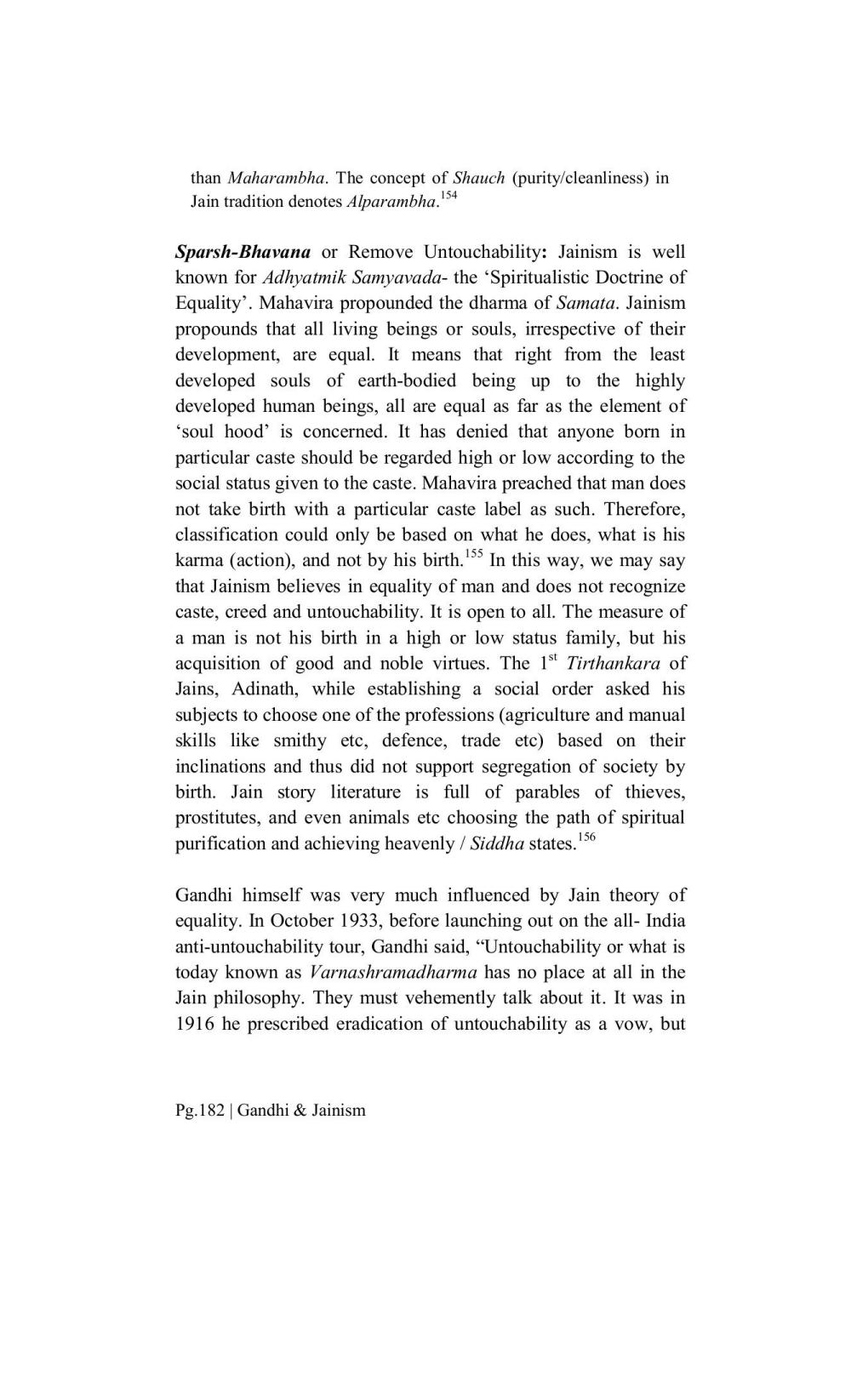________________
than Maharambha. The concept of Shauch (purity/cleanliness) in Jain tradition denotes Alparambha.154
Sparsh-Bhavana or Remove Untouchability: Jainism is well known for Adhyatmik Samyavada- the 'Spiritualistic Doctrine of Equality'. Mahavira propounded the dharma of Samata. Jainism propounds that all living beings or souls, irrespective of their development, are equal. It means that right from the least developed souls of earth-bodied being up to the highly developed human beings, all are equal as far as the element of 'soul hood' is concerned. It has denied that anyone born in particular caste should be regarded high or low according to the social status given to the caste. Mahavira preached that man does not take birth with a particular caste label as such. Therefore, classification could only be based on what he does, what is his karma (action), and not by his birth. In this way, we may say that Jainism believes in equality of man and does not recognize caste, creed and untouchability. It is open to all. The measure of a man is not his birth in a high or low status family, but his acquisition of good and noble virtues. The 1st Tirthankara of Jains, Adinath, while establishing a social order asked his subjects to choose one of the professions (agriculture and manual skills like smithy etc, defence, trade etc) based on their inclinations and thus did not support segregation of society by birth. Jain story literature is full of parables of thieves, prostitutes, and even animals etc choosing the path of spiritual purification and achieving heavenly / Siddha states.156
Gandhi himself was very much influenced by Jain theory of equality. In October 1933, before launching out on the all- India anti-untouchability tour, Gandhi said, "Untouchability or what is today known as Varnashramadharma has no place at all in the Jain philosophy. They must vehemently talk about it. It was in 1916 he prescribed eradication of untouchability as a vow, but
Pg.182 Gandhi & Jainism




